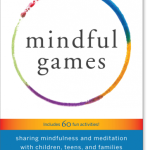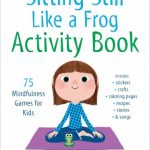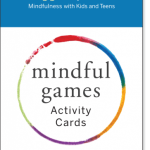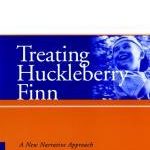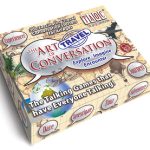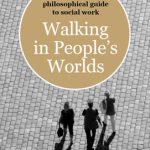Many children who have experienced serious trauma are withdrawn and closed off, making it difficult to engage with them in therapy effectively. This book offers a compendium of therapeutic activities that will help children who have endured painful abuse to open up, so that they can learn to express their feelings and therapy can be directed towards their individual needs.
From useful techniques for bridging memory gaps to using masks for self-expression, the innovative activities use mindfulness, art and play to help children feel relaxed and responsive. The activities require very little preparation, and use only everyday items that are easy to access and can be used time and time again. Case studies throughout offer a helpful demonstration of how the activities work in practice.
This is an ideal resource for use with children in therapeutic, home and school settings. It is appropriate to use with children aged 5-17 who have experienced trauma, physical abuse, sexual abuse, forced migration and severe neglect, as well as those with acute depression, anxiety and behavioural difficulties.
Contents:
- Introduction.
- Part One. Techniques. 1. Mask of Me x 3. 2. Treasure Box. 3. Green Flash. 4. Life Story. 5. Baggage/Luggage. 6. Umbrella. 7. Ocean. 8. Keys. 9. Magnifying Glass. 10. Clean the Mirror. 11. Snail Shell. 12. Sea Shell. 13. Fighter Fish. 14. Garden of Grief. 15. Garden of Hope. 16. Nerve. 17. What Are You Dragging into Your World? 18. Wish Upon a Star. 19. Make Yourself a Star. 20. Luck. 21. Turning Back the Hands of Time. 22. Turning Back the Hands of Time Part 2. 23. Memory Clock. 24. Full Body Trace. 25. Full Body Trace 2. 26. Pie Chart of Emotions. 27. Draw Brain or Circle of Head. 28. Feeling Words Game. 29. Feeling Words Game 2. 30. Heart Now. 31. What Happiness Looks Like. 32. Finger or Sock Puppet Family. 33. Safe and Unsafe Communities. 34. When Do You Feel like a Lion? 35. Magic Wand. 36. Feathers/Tickle. 37. Pillow/Blanket/Soft/Cozy. 38. Stone/Bumpy. 39. Rough. 40. Safe Inside. 41. Lotus Blossom. 42. Container. 43. Birthday Clock. 44. Birthday Clock 2. 45. Ocean. 46. Slay Your Dragon. 47. Conch Shell. 48. Orange Cone. 49. Cloudy Faces. 50. Sunny Day. 51. Cloudy Day. 52. Key to Open the Heart. 53. Pandora’s Box. 54. Bird Wing. 55. Silk. 56. Tightrope. 57. Clouds. 58. Hands. 59. Birthday Balloons. 60. Birthday Balloons 2. 61. Ball of Yarn. 62. Hairy Cactus. 63. Animal Kingdom. 64. Remember When? 65. Ouch! 66. Help! 67. Lifelines. 68. Heroes. 69. Allies. 70. When I Was Young. 71. Blue, Yellow, Purple, Red. 72. Nightmares and Daydreams. 73. Memories. 74. The Elements. 75. Why. 76. Is it About Me? 77. Boulders. 78. Kites. 79. New Chapter. 80. Times I Need. 81. What I Want. 82. What Else? 83. My Family/My Caregivers. 84. Putting Things in Their Place. 85. A Special Time for Me. 86. Assertion and the Use of “I”. 87. Rocker. 88. Being There. 89. Hiding. 90. Fear. 91. Bandages and Smiley Faces. 92. Storms. 93. Ringing the Bell. 94. Clarifying. 95. Enough is Enough. 96. What was Supposed to Happen? 97. When it Happened, I was…. 98. Tornado. 99. Fly on the Wall. 100. It is Embarrassing.
- Part Two. Coping Strategies. Introduction. 101. Baggage/Luggage Part 2. 102. Train Derailing. 103. Octopus. 104. Action. 105. Coping. 106. Fork in the Road. 107. Feet. 108. Open and Closed. 109. Airplanes. 110. Wings. 111. Spirals.
- Part Three. Reinforcing Positive Feelings. 112. Stepping Stones. 113. Nut Boats. 114. Smiling Heart. 115. I Am a Good Person. 116. Treasure Chest. 117. Dance in Freedom. 118. Laughter. 119. Toe Painting. 120. Fly Free. 121. Comfort/Soothe. 122. Open Heart.
Author Bio:
Dawn D’Amico is a clinical social worker and psychotherapist and has worked with affected by various types of trauma in different settings, including in private practice, hospitals, children’s homes and refugee camps. She has over 22 years’ experience in the field and has worked internationally in Asia and Africa as well as in the USA. Dawn has a PhD in Spiritual Counseling and lives in Wisconsin, USA.



